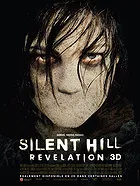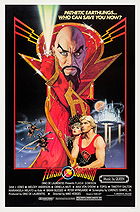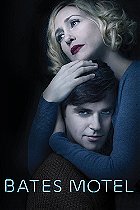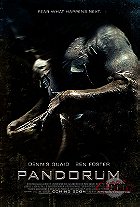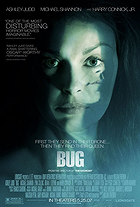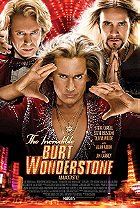When it comes to the Die Hard franchise, the soup has already been pissed in. The original trilogy is close to perfect, yet 2007's Live Free or Die Hard tarnished the brand name, with new helmer Len Wiseman mounting an abominable PG-13 distraction that doesn't walk or talk like a Die Hard movie at all. And now we have the fifth film, 2013's A Good Day to Die Hard, which is back in R-rated territory for another round of pandemonium. Written by Skip Woods (Wolverine, The A-Team), this Die Hard outing is not on the same level as the original trilogy, but it's a step in the right direction for the ailing series. It's fun but ultimately inconsequential, too slight at 97 minutes and tremendously silly. Nevertheless, it administers a good-natured string of mayhem and violence that should keep you entertained, even if it doesn't feel like a true Die Hard movie.

Upon learning that his mostly estranged son Jack (Jai Courtney) has been arrested in Moscow for murder, NYPD cop John McClane (Bruce Willis) flies to Russia hoping to collect his boy. Instead, he becomes entangled in a dangerous assassination plot involving political prisoner Yuri Komarov (Sebastian Koch). Jack has worked as an undercover CIA operative for years, and his mission is to bring Komarov to safety so he can provide a file that could take down corrupt Russian politician Chagarin (Sergei Kolesnikov). Problem is, Chagarin is unwilling to let his existence be threatened by Komarov, and he sends a team led by his top enforcer, Alik (Rasha Bukvic), to assassinate him. With Jack acting as Komarov's protector, John gets swept along for the ride to help his son confront the increasing hostility.
A Good Day to Die Hard gets into the action reasonably early, with an extensive car chase not long after McClane arrives in Moscow. Intended to be the film's centrepiece, the crew apparently spent 77 days shooting the thing, but it's all for naught. While the sequence looks handsome enough, it's a black hole of awkwardness from which no joy can escape; hundreds of innocent civilians appear to be injured and killed during the rampage, and an enormous amount of damage is perpetrated. Not to mention, John clues himself into the whole situation too quickly and easily. Things eventually improve, but the storytelling is shockingly underdone and character development is virtually non-existent. The film lacks sufficient build-up to the carnage, begging for Jack and John to be further developed. It doesn't help that large chunks of the film seem to be missing, with the McClane duo driving from Moscow all the way to Chernobyl (about 400 miles) in the blink of an eye. The structure is choppy, and the pacing feels uneven. A Good Day to Die Hard clearly had a torpedo taken to it in the editing room; it's telling that this Die Hard clocks in at around 90 minutes, whereas the other instalments had a more comfortable two hours to work through their narrative. The extended edition restores a bit more dramatic material, but one must still wonder how much was cut either during the scripting stage or the editing stage.

In the director's chair of A Good Day to Die Hard is John Moore, a terrible choice considering his history with low-grade filmmaking (The Omen remake, Max Payne). If there's an area where Live Free or Die Hard betters this fifth film, it's in the filmmaking. The fourth film was at least pretty smooth, but the camera here is too shaky, and the editing is too shonky. It is doubtful that tripods were used at any point throughout filming. However, the grittier filmic look of A Good Day to Die Hard is welcome. Live Free or Die Hard was sanitised and glossy, with tiny amounts of blood and a detrimentally "clean" look. By contrast, A Good Day is darker in tone, with more blood and a grittier edge. Plus, the action scenes are frequently enjoyable, including a handful of nice shootouts and some entertaining fisticuffs. A few action beats are admittedly too over-the-top, especially the climax, but they don't entirely take you out of the movie. Nevertheless, McClane is too much of an unstoppable superhero here, in dire need of the more vulnerable edge that characterised him in the first place. Although the shaky cam is not as prevalent or distracting as it could've been, the action should've been more coherently shot and edited. Plus, Moore leans on ridiculous slo-mo on a few occasions, which is a dreadful misstep.
Willis is getting older, and it's clear that he mostly features in motion pictures for the money rather than the thrill of it. To his credit, he looks awake a few times throughout A Good Day, and there are a few glimpses of the John McClane we know and love (whereas McClane was positively MIA in Live Free). It's good to hear the detective swearing up a storm once again. However, he still looks asleep a lot of the time, and there are a few instances when it sounds as if Willis was dubbed by someone who doesn't sound like him at all. Surprisingly, Courtney fares rather well. The Australian native has bounced around the sidelines for years, occasionally showing up in TV shows and playing minor roles in films like Jack Reacher. His role of Jack McClane was briefly glimpsed in the original Die Hard but hasn't been seen since, so it's an interesting choice to finally introduce him properly. Courtney is solid in the role; he has the right attitude and looks at home in the middle of the action. The film also finds time for a few pleasant moments in which Jack and John bond, which gives the film a welcome smattering of heart. In the supporting cast, Rasha Bukvic excels as Alik. It's a colourful role, and the actor runs with it; he's good fun. Koch is also solid as the grizzled Komarov, and Mary Elizabeth Winstead pops in for two short scenes (and a voice cameo) as John's daughter, Lucy, reprising her role from the previous film.

A Good Day is a relatively soft R, with only a few blood sprays and around 15 f-bombs. It doesn't feel like it's pulling punches, however, as bullet hits are visible, and no awkward cutaways are used. It would be nice to see a more full-blooded R-rated Die Hard sequel, but at least Fox allowed the film to be released with an R rating (though it was censored in the UK, earning a 12A certificate). All in all, A Good Day to Die Hard is not the worst of the bunch, but it's not close to reaching the dizzying heights of the first three films, and it does not exactly close the franchise on the highest note. The script is too slipshod, the plotting too underdone, and the direction too frenzied. Nevertheless, if it's taken as the 90-minute action ride that it is, the movie delivers. It's not exactly Die Hard, but it is a good fun actioner, ridiculously enjoyable and with a few good laughs here and there. It's definitely not the disaster that the critics have made it out to be.
6.5/10
 Login
Login
 Home
Home 183 Lists
183 Lists 1665 Reviews
1665 Reviews Collections
Collections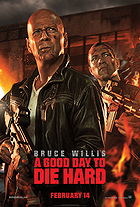
 0 comments,
0 comments, 